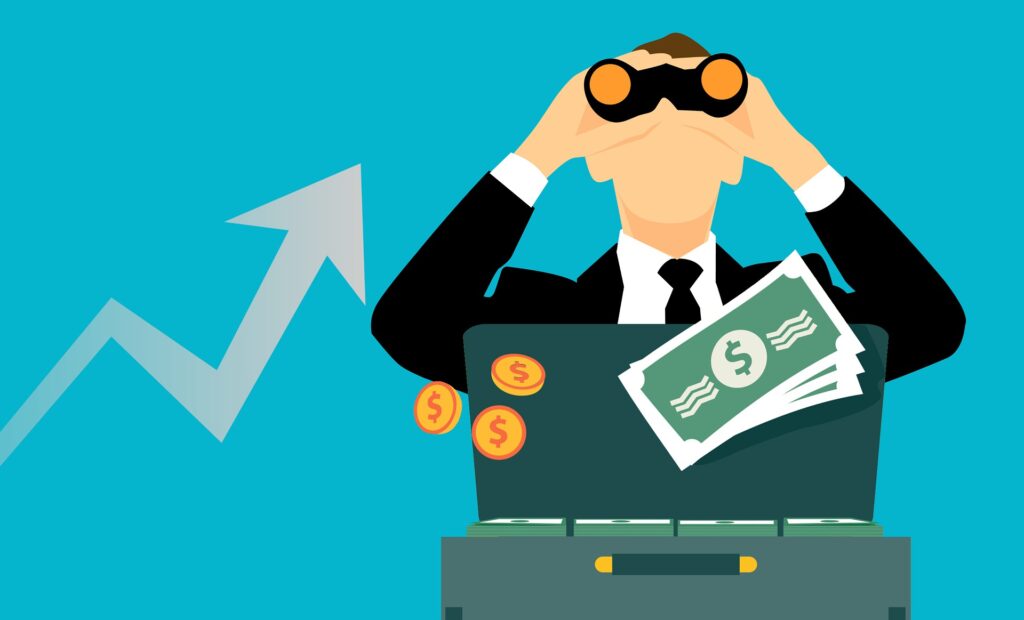Many people make New Year’s resolutions to become more financially fit. After all, financial fitness is indeed vital to achieving happiness and security in life. But building passive income, investing for retirement, lowering debt — these types of resolutions are harder to accomplish. Here’s a five-step plan to help you develop the habit of creating and sticking to long-term goals and change the course of your finances for years to come.
Reassess Your Budget
As high inflation has forced many households to allocate more for essentials like groceries or gas, it’s imperative to reassess your budget as part of this process. You may be surprised by how much you’ve changed since creating your last budget, or you may find that your current budget is still perfectly suited to your needs. Either way, it’s worth taking some time to evaluate where you are now and what you want to get out of the upcoming year.
First, list all your income sources, including salary, bonuses, and dividends from investments. Next, do the same for your expenses—this will probably include fixed and variable costs. Finally, consider what you want to spend money on in the coming years—it’s often helpful to divide this into goals like saving for retirement or buying a car in the next few years. Remember, you cannot just spend money like the federal government does and worry about paying it back decades from now. We all wish we can print money like the feds do but we simply can’t.
You can create the perfect budget by creating a complete picture of what you have available, where it’s going, and how much you want it to go toward future goals.
Create an Emergency Fund
An emergency fund is an important aspect of any financial plan because it helps protect against unexpected expenses and liabilities. Accidents, illnesses, or other unforeseen circumstances can throw off any household’s balance sheet. Having an emergency fund will ensure that unpredictable circumstances don’t derail your goals.
Set aside enough money in a savings account or certificate of deposit to cover three months’ worth of expenses—including fixed costs like mortgage payments and variable expenses like groceries. If this seems like a lot to put away every month, start with whatever you can afford—you can always add more as time goes on. Just remember to keep your emergency fund separate from other accounts to avoid dipping into the account for non-emergencies.
Manage Your Debt
There’s no point in waiting to tackle your debt after the holidays. If you carry balances on your credit cards, daily purchases can quickly snowball into long-term debt that could take years to pay off—or even require you to shell out more money in interest than the original sum of the purchases you made. But if you anticipate a year-end bonus or raise, why not use it to pay off your high-interest debt first?
Next, consider consolidating your remaining debt into a single loan with reduced interest rates. With refinancing, you might get one monthly payment instead of managing several different credit accounts with varying due dates and minimum payments.
Taking action early in the new year will give you time to make adjustments before the next set of bills rolls around—you’ll have more control over your financial situation which is vital during the era of high costs. In 2018, for instance, we did not have these issues, but they started to be relevant to us in 2021 and they may not go away until 2024. Maintaining harmony in your financial life is critical for more reasons than one.
Optimize Your Portfolio
If you’re like most people, your portfolio might be split up among mutual funds, retirement accounts such as IRAs and 401K, stock certificates and the like. You may even have a few individual stocks. A well-balanced portfolio, or a mix of investments, does more than just keep your money safe and grow over time which is vital during a time of high gas prices. We may have high gas prices until 2024 when we can start to drill again but this is even more of a reason for you to invest properly and to save money.
It also ensures your hard-earned cash is working for you at an optimal level to give you control over your finances. Evaluate and reevaluate every asset you own, from stocks to real estate to any other financial asset, for its potential and risks. Get rid of any investments that aren’t working for you. But don’t make any drastic changes to your portfolio until you’ve given yourself enough time and information to feel confident in your decisions.
Prioritize Your Wellness
The rising cost of healthcare because of the lack of competition can make anyone anxious. It’s no longer a small bill at the doctor’s office; it is an enormous debt from healthcare plans, prescriptions, and other necessary treatments to maintain everyday life. While they say good health is priceless, there are undeniable facts that prove that this expensive commodity has a hefty cost as well. So, make sure your insurance plans have been reviewed.
Having a plan for where you and your family will be covered for healthcare should be a priority. Review your long-term financial health next. This is one area we don’t tend to pay enough attention to, even though it’s probably the most crucial element of our finances. And because we’re living longer and working longer, keeping our minds and bodies healthy is just as crucial to our personal welfare as making money is to our financial well-being.


